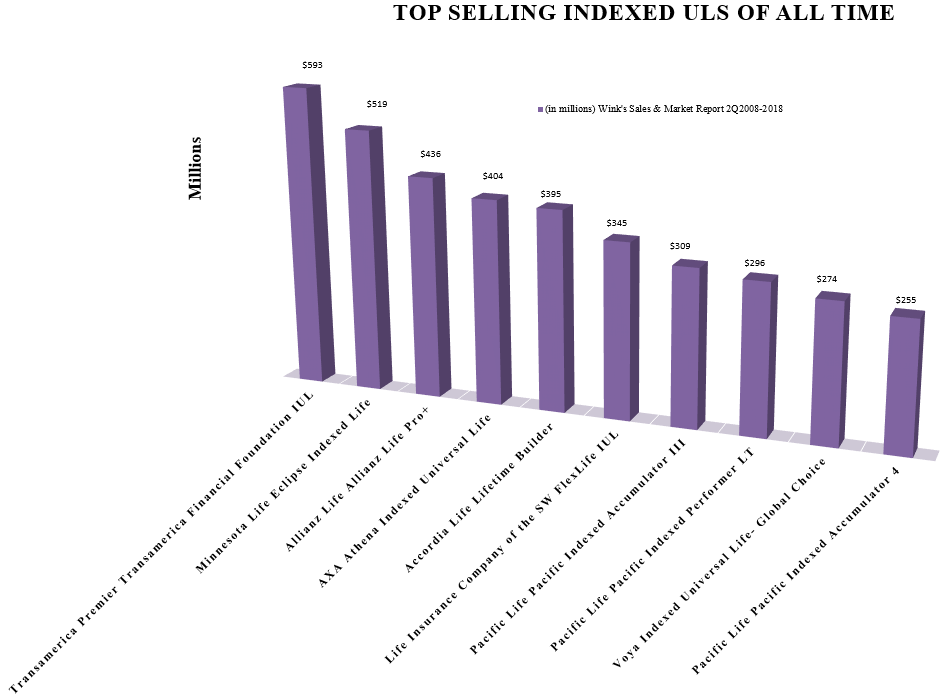All Categories
Featured
Table of Contents
Do they contrast the IUL to something like the Lead Total Amount Stock Market Fund Admiral Shares with no lots, an expense ratio (ER) of 5 basis points, a turnover proportion of 4.3%, and a remarkable tax-efficient record of circulations? No, they contrast it to some horrible proactively handled fund with an 8% load, a 2% ER, an 80% turn over ratio, and a terrible record of temporary capital gain circulations.
Mutual funds commonly make yearly taxable distributions to fund proprietors, also when the worth of their fund has actually dropped in value. Mutual funds not only need income reporting (and the resulting annual tax) when the mutual fund is going up in value, but can likewise enforce revenue tax obligations in a year when the fund has gone down in value.
That's not how common funds work. You can tax-manage the fund, gathering losses and gains in order to lessen taxed distributions to the financiers, yet that isn't somehow going to transform the reported return of the fund. Only Bernie Madoff types can do that. IULs stay clear of myriad tax traps. The ownership of mutual funds might call for the mutual fund proprietor to pay approximated tax obligations.

IULs are very easy to position to ensure that, at the proprietor's death, the beneficiary is exempt to either earnings or inheritance tax. The very same tax decrease strategies do not function almost also with mutual funds. There are countless, typically expensive, tax obligation traps associated with the moment trading of mutual fund shares, traps that do not relate to indexed life Insurance coverage.
Chances aren't really high that you're going to undergo the AMT as a result of your shared fund distributions if you aren't without them. The rest of this one is half-truths at finest. As an example, while it holds true that there is no earnings tax as a result of your successors when they acquire the proceeds of your IUL plan, it is also true that there is no income tax obligation because of your successors when they inherit a common fund in a taxed account from you.
Universal Life Insurance Companies
There are far better methods to prevent estate tax obligation issues than acquiring financial investments with reduced returns. Common funds may create income tax of Social Safety benefits.

The growth within the IUL is tax-deferred and may be taken as tax free earnings through loans. The policy owner (vs. the common fund manager) is in control of his or her reportable earnings, therefore allowing them to decrease or also eliminate the taxes of their Social Security benefits. This one is wonderful.
Right here's another minimal concern. It's true if you buy a shared fund for claim $10 per share right before the distribution day, and it distributes a $0.50 distribution, you are then going to owe taxes (possibly 7-10 cents per share) regardless of the reality that you have not yet had any kind of gains.
In the end, it's truly regarding the after-tax return, not exactly how much you pay in taxes. You're also probably going to have even more cash after paying those tax obligations. The record-keeping needs for possessing mutual funds are considerably much more complex.
With an IUL, one's documents are kept by the insurer, duplicates of annual statements are sent by mail to the owner, and circulations (if any) are completed and reported at year end. This is also type of silly. Naturally you ought to keep your tax records in instance of an audit.
Universal Life Insurance Broker
All you have to do is shove the paper right into your tax obligation folder when it shows up in the mail. Rarely a factor to purchase life insurance policy. It resembles this individual has never ever bought a taxed account or something. Mutual funds are typically component of a decedent's probated estate.
Furthermore, they go through the hold-ups and costs of probate. The earnings of the IUL policy, on the other hand, is always a non-probate distribution that passes outside of probate straight to one's named beneficiaries, and is for that reason not subject to one's posthumous lenders, undesirable public disclosure, or similar delays and prices.
We covered this under # 7, however simply to evaluate, if you have a taxed mutual fund account, you need to put it in a revocable trust fund (or perhaps easier, utilize the Transfer on Death classification) in order to stay clear of probate. Medicaid incompetency and life time revenue. An IUL can provide their owners with a stream of earnings for their whole lifetime, no matter for how long they live.

This is helpful when arranging one's events, and transforming possessions to income prior to a retirement home arrest. Mutual funds can not be converted in a comparable manner, and are practically always considered countable Medicaid properties. This is one more stupid one promoting that bad people (you know, the ones who require Medicaid, a federal government program for the poor, to pay for their nursing home) ought to utilize IUL rather of mutual funds.
Universal Life Insurance Death Benefit Options
And life insurance policy looks dreadful when contrasted relatively versus a retirement account. Second, individuals who have cash to buy IUL over and beyond their retirement accounts are going to need to be dreadful at handling money in order to ever before get approved for Medicaid to spend for their assisted living facility prices.
Persistent and incurable health problem motorcyclist. All policies will allow a proprietor's simple access to money from their plan, often forgoing any kind of abandonment penalties when such people suffer a serious illness, need at-home treatment, or come to be confined to an assisted living facility. Mutual funds do not provide a similar waiver when contingent deferred sales charges still put on a common fund account whose owner requires to offer some shares to fund the costs of such a keep.
Indexed Universal Life Insurance Calculator
Yet you get to pay even more for that advantage (biker) with an insurance coverage. What a large amount! Indexed global life insurance policy offers survivor benefit to the recipients of the IUL proprietors, and neither the owner neither the recipient can ever before lose cash due to a down market. Shared funds give no such assurances or survivor benefit of any kind of kind.
Currently, ask on your own, do you in fact require or desire a survivor benefit? I definitely do not need one after I get to economic self-reliance. Do I want one? I suppose if it were cheap sufficient. Certainly, it isn't inexpensive. On average, a purchaser of life insurance pays for the real price of the life insurance coverage benefit, plus the expenses of the plan, plus the earnings of the insurer.
Variable Universal Life Insurance Reviews
I'm not completely certain why Mr. Morais threw in the entire "you can not shed cash" again below as it was covered rather well in # 1. He simply wished to duplicate the most effective marketing point for these things I suppose. Once again, you don't shed nominal bucks, however you can lose real dollars, in addition to face serious opportunity price because of low returns.

An indexed universal life insurance policy plan proprietor may exchange their policy for a totally different plan without triggering earnings tax obligations. A shared fund proprietor can not relocate funds from one common fund firm to another without selling his shares at the previous (hence activating a taxable occasion), and redeeming new shares at the latter, frequently based on sales fees at both.
While it holds true that you can exchange one insurance coverage for one more, the factor that people do this is that the initial one is such an awful plan that also after purchasing a new one and going through the early, negative return years, you'll still come out ahead. If they were sold the appropriate plan the very first time, they should not have any desire to ever before trade it and go through the early, negative return years once more.
Latest Posts
Guaranteed Ul Insurance
Equity Indexed Life Insurance
Index Universal Life Insurance Vs Whole Life